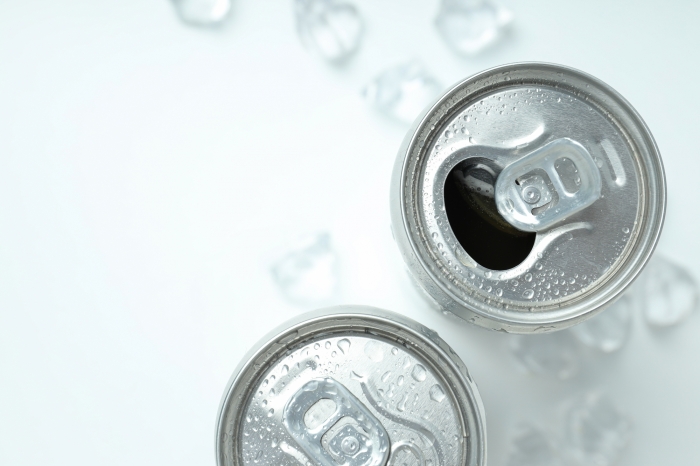The Science Behind That Funky Canned Wine Smell
Polymers: The Future of Freshness in Canned Wine?
2024-06-04

Ever opened a can of wine and been greeted by a whiff of something less than pleasant, like rotten eggs? You're not alone, and there's good news: scientists at Cornell University are on the case. As the popularity of canned wine soars, especially among younger, on-the-go consumers, an unexpected issue has emerged. Reports of unpleasant aromas from some canned wines have prompted a deep dive into the science behind it, and the results are fascinating.
Canned wine is the cool kid on the block in the wine industry. It's convenient, lightweight, and recyclable, making it perfect for outdoor activities and casual sipping. Sales spike during the warmer months when people are more likely to grab a single-serving can for picnics, beach outings, or festivals. But as its popularity grows, so does the need to address any quality concerns.
Imagine opening a can of wine and smelling rotten eggs. Not exactly the aroma you'd expect from your favorite Chardonnay or Rosé. This off-putting smell doesn't mean the wine is bad, but it's definitely a turn-off. Concerned producers turned to the experts at Cornell University's College of Agriculture and Life Sciences to figure out what was going on.
Dr. Gavin Sacks and Dr. Julie Goddard, professors in the food science department, took up the challenge. They started their research back in 2018 and have been publishing their findings in the American Journal of Enology and Viticulture. Their most recent study, published in February 2024, pinpoints the cause and suggests innovative solutions to keep our canned wine smelling sweet.
The first step was to identify why the smell was developing in the first place. Wine naturally contains sulfur dioxide (SO2), used as a preservative and produced during fermentation. It's usually harmless and unnoticeable. However, when wine is stored in aluminum cans, a reaction occurs between the SO2 and the aluminum, producing hydrogen sulfide (H2S), the compound responsible for that rotten egg smell.
Dr. Sacks explains, "In wines with more than 0.5 parts per million (ppm) of molecular SO2, we saw significant increases in H2S within four to eight months." This reaction doesn't happen with soda or beer because they don't contain SO2. But for wine, especially those with higher SO2 levels, it's a real issue.
Once they identified the problem, the team at Cornell quickly got to work on solutions. Reducing SO2 levels in wine was one approach, but it's a bit of a double-edged sword. SO2 helps prevent oxidation and microbial growth, which are crucial for maintaining the wine's quality. Removing it entirely could lead to other spoilage issues.
Instead, Dr. Sacks recommends wineries aim for the lower end of the SO2 range they're comfortable with. Cans provide a hermetic seal, which helps prevent oxidation as long as the canning process is done properly. This makes it a viable option for keeping wine fresh without the need for high SO2 levels.
Interestingly, consumer preferences also play a role. Canned wines are often seen as less serious and more casual, which means you're more likely to find whites, rosés, and sparkling wines in cans rather than reds. These types of wines tend to have higher SO2 levels, making them more prone to developing that rotten egg smell.
Beyond adjusting SO2 levels, the Cornell team is working on a high-tech solution involving polymers. With funding from the U.S. Department of Agriculture's National Institute of Food and Agriculture, they are developing recyclable, food-grade polymers to line the inside of aluminum cans. These liners aim to prevent the chemical reaction that creates H2S, keeping the wine stable and fresh.
Dr. Héctor Abruña, a professor of chemistry at Cornell, joined the team to help design these liners. The challenge is to maintain recyclability, keep costs low, and ensure no other unwanted chemical reactions occur. While the research is still in progress, the potential benefits are significant.
Dr. Sacks is excited about the potential for innovation in canned wine. "I thought aluminum cans were boring until I started working on them," he admits. Today's wine consumers value portability and convenience, and cans fit that bill perfectly. They're ideal for concerts, poolside lounging, and all sorts of outdoor activities where a traditional glass bottle just isn't practical.
With ongoing research and a commitment to solving the sulfur dioxide issue, the future of canned wine looks bright—and smell-free. So next time you crack open a can of your favorite wine, you can do so with confidence, knowing that scientists are hard at work ensuring it's as delightful as it should be.
Founded in 2007, Vinetur® is a registered trademark of VGSC S.L. with a long history in the wine industry.
VGSC, S.L. with VAT number B70255591 is a spanish company legally registered in the Commercial Register of the city of Santiago de Compostela, with registration number: Bulletin 181, Reference 356049 in Volume 13, Page 107, Section 6, Sheet 45028, Entry 2.
Email: [email protected]
Headquarters and offices located in Vilagarcia de Arousa, Spain.